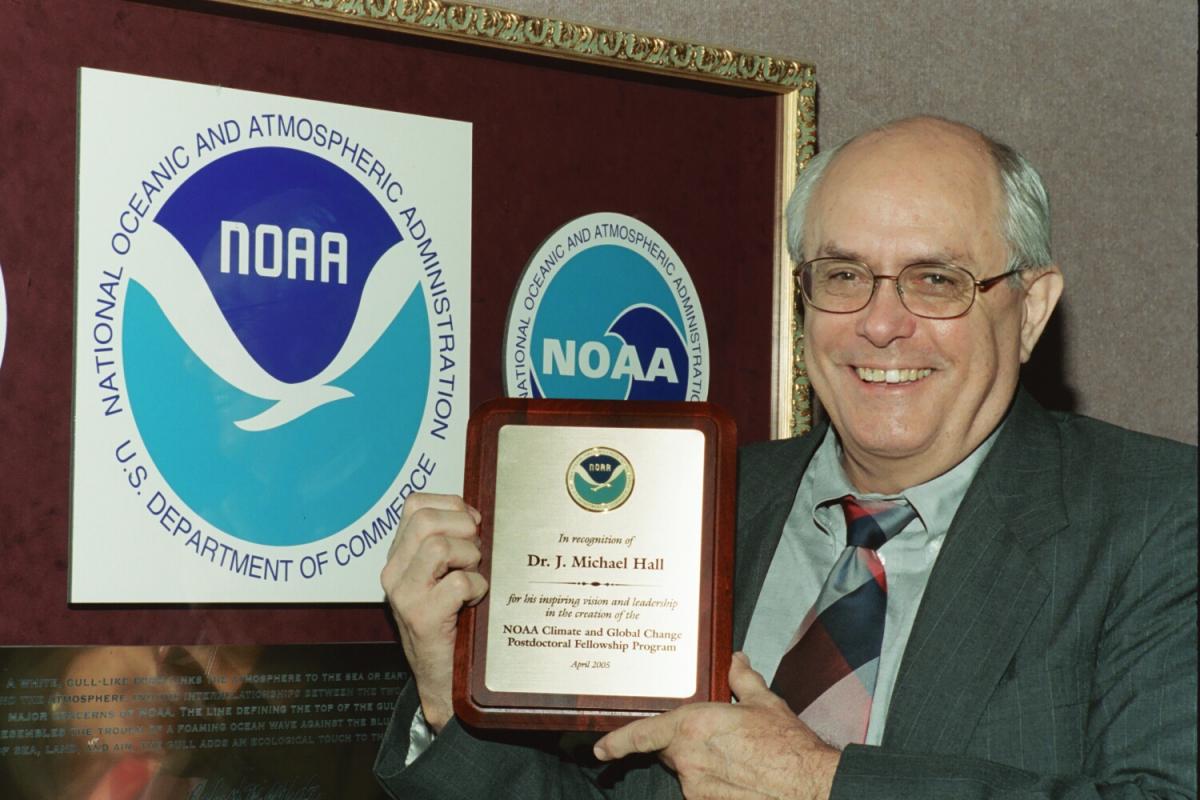NOAA Climate & Global Change (C&GC) Postdoctoral Program
We are currently awaiting federal budget decisions before determining whether this program will accept applications for a 2026 class.
Program Overview
The fellowship program has an outstanding reputation for attracting the best and the brightest PhDs in the sciences and for training future leaders in Climate and Global Change Science. In FY25, the C&GC Postdoctoral Fellowship Program highlights the need for applications across the full breadth of disciplines contributing to Climate and Global Change Science.
Innovative research within and across disciplines that span the spectrum of the physical, social, and integrated sciences is needed to understand, better predict, plan for, and manage the Earth System and its interactions in a changing climate, how communities experience and are impacted by these changes, and how society will pursue low-carbon adaptation pathways for a secure and sustainable future. NOAA’s Science Council emphasizes the importance of extramural investments in climate science spanning observations, analysis, modeling, and the integration of social, behavioral, and economic research across NOAA mission areas (NOAA Strategic Research Guidance Memorandum FY25). Each appointed fellow is hosted by a mentoring scientist at a U.S. university or research institution (including Federal laboratories and FFRDCs) to work in an innovative climate-related research area of mutual interest to advance NOAA’s science mission. This mission is to understand and predict climate, weather, oceans, and coast changes and illustrate relevance to the NOAA FY22-26 Strategic Plan. For example, our plan calls for Integrated Breakthrough Climate Research under the Build a Climate Ready Nation goal.
NOAA Climate and Global Change Postdoctoral Fellows focus on advancing Climate and Global Change Science. This includes science that furthers our understanding of physical earth system processes, climate impacts, and climate adaptation science. Examples include: observing, understanding, modeling, and predicting climate variability, change, and impacts on seasonal and longer time scales; documentation and analysis of past, current, or possible future climate variability and change; the study of the underlying Earth Systems processes, including physical-, chemical-, biological-, biogeochemical-, coupled human-systems processes, and/or their interactions. Coupled human-systems processes include climate adaptation science and its methods and analyses considering vulnerabilities, decision-making contexts, and/or policy pathways for a low-carbon, sustainable, and equitable future society. Applications may be focused on one discipline or be interdisciplinary, integrating across disciplines.
How to Apply
Applications closed on January 10, 2025. Thank you.
NOAA C&GC Question and Answer Session
A Q&A Session with your application questions was held on October 15, 2024. View the Q&A Session Recording
Additional information can be found on:
How Postdocs Apply
- Applicants must have a PhD degree in an area related to climate change research and have completed their defense of the degree before starting the Fellowship. Preference is given to new graduates who are seeking their first postdoctoral position and who have held a PhD for no more than three years from the application deadline.
How Hosts Apply
- Potential host scientists are required to submit a letter of intent to host, curriculum vitae, mentoring plan, and a list of current and pending research support as part of the selection process.
- Co-hosting a Postdoctoral Fellow is allowed. In this case, the Letter of Intent to host should be co-written by both Hosts. We require separate documents for the remaining material (Resumes, Mentoring Plans, and Current and Pending Research Support) from the Co-Hosts.
- Hosts are expected to mentor the Fellow, provide a reasonable office environment, including a computer workstation, and cover any other unique research costs. Open to proposed U.S. Universities or Research Institutions.
- Hosts are encouraged to register on our UCAR host website or Database of Potential Hosts site, but this is not a requirement.
Program History
Dr J. Michael Hall, former director of the NOAA Climate Program Office, founded the NOAA Climate and Global Change Postdoctoral Fellowship Program in 1990. Anticipating the large amounts of data that was gathered from NOAA efforts, such as TOGA and TOGA COARE field programs, the research community required the attention of an enlarged workforce here and abroad. In a larger context, it was necessary to attract new PhD’s to the community in order to establish the seeds of scientific leadership needed in the field of climate and global change research.
CPAESS (formerly UCAR Visiting Scientist Programs) has managed the program since its inception. The program has been highly successful. The program has also celebrated a 10th anniversary, a 100th postdoctoral appointment anniversary, and a 20th anniversary, which brought together alumni, current appointees, current and past hosts and many scientists and administrators who have supported the program over the years. See Current Awardees & Alumni for information on every appointment made through this program.
C&GC History & Progress Report [1991-2018]
During this time, 230 C&GC Postdocs have been hosted all over the United States. To date, there have been 267 Fellows.
